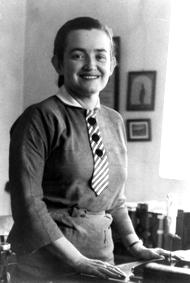Josefina Valencia Muñoz
| Josefina Valencia Muñoz | |
|---|---|
 |
|
| 46th Minister of National Education of Colombia | |
|
In office 16 September 1956 – 10 May 1957 |
|
| President | Gustavo Rojas Pinilla |
| Preceded by | Gabriel Betancourt Mejía |
| Succeeded by | Próspero Carbonell MacAusland |
| Governor of Cauca | |
|
In office 21 September 1955 – 16 September 1956 |
|
| President | Gustavo Rojas Pinilla |
| Preceded by | Tomás Castrillón Muñoz |
| Succeeded by | Víctor Gómez Gómez |
| Personal details | |
| Born |
Josefina Valencia Muñóz 22 September 1913 Popayán, Cauca, Colombia |
| Died | 4 October 1991 (aged 78) Madrid, Madrid, Spain |
| Resting place | Museo Guillermo León Valencia |
| Nationality | Colombian |
| Political party | National Popular Alliance |
| Other political affiliations |
Conservative |
| Spouse(s) | Enrique Hubach Eggers (1943-1968) |
| Relations |
Guillermo Valencia Castillo (father) Guillermo León Valencia Muñóz (brother) |
| Children | Martha Hubach Valencia Erna Hubach Valencia |
| Occupation | Politician |
Josefina Valencia Muñoz (22 September 1913 – 4 October 1991) was a Colombian politician, and the first woman to be appointed governor of a Colombian department as Governor of Cauca, and the first woman to be appointed to a cabinet-level position as the 46th Minister of National Education of Colombia.
A leader of the women's suffrage movement in Colombia, she became the first woman to be appointed to serve in a national legislative position in Colombia as part of the National Constituent Assembly in 1954 where she helped introduce what would eventually be the Legislative Act No. 3, which modified Article 171 of the Colombian Constitution of 1886 that granted universal suffrage to women.
Josefina was born in Popayán on 22 September 1913 to Guillermo Valencia Castillo and Josefina Muñoz Muñoz, the third of five children, her siblings were Guillermo León, Álvaro Pío, Luz and Guimar. In 1943 she married Enrique Hubach Eggers, a Chilean geologist and scientist; Enrique and Josefina had three daughters: Martha, Erna, and a third who died at a young age.
Valencia was already familiar with the politics of Colombia in the 1950s; her father, Guillermo Valencia had been an active member of the Colombian Conservative Party, a Congressman, Minister of Finance, Governor, and presidential candidate in the elections of 1918, and 1930, and her brother Guillermo León had been Councilman, Congressman, Minister of Foreign Affairs, and Ambassador.
...
Wikipedia
